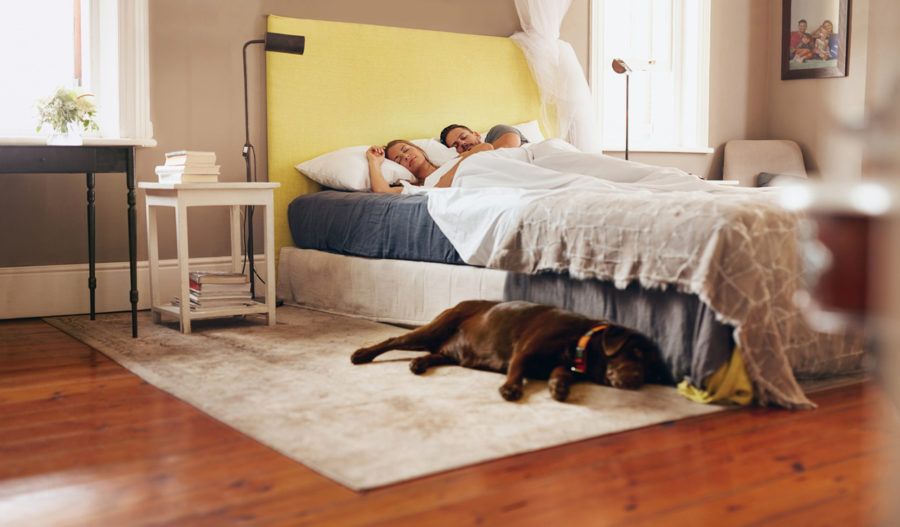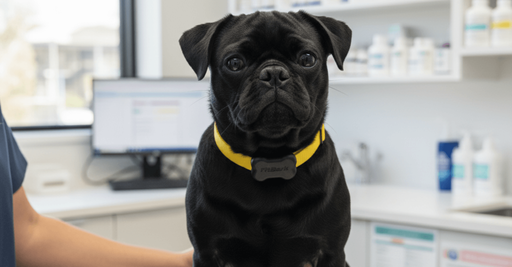Great news for those who can’t bear to be apart from their pooches: allowing Fido to sleep in your room can actually give you a better night’s sleep!
“Most people assume having pets in the bedroom is a disruption,” says Lois Krahn, M.D., a sleep medicine specialist at the Center for Sleep Medicine on Mayo Clinic’s Arizona campus and an author of the study. But is this actually true? The Mayo Clinic published the findings of their sleep study, The Effect of Dogs on Human Sleep in the Home Sleep Environment, which used the FitBark to measure sleep efficiency, in early September 2017. While it is commonly thought that having a dog in the bedroom disrupts sleep, the study reveals that having your pup sleep in your room is generally not a disruptive habit. Not only that, our dogs also seem to achieve desirable sleep scores from being allowed to stay near us in the night.
The study ran over the course five months and focused on 40 adults, who did not have any sleep disorders, and their dogs. Both the humans and the dogs had activity trackers, with the canine participants using FitBarks, which were worn for 7 consecutive nights. The study shows that the overwhelming majority of participants maintained their sleep efficiency while having their dog in the room. However, it’s important to note that while having your pup sleep in your room can provide great comfort and have no ill effect on your sleep, allowing Fido to crawl into bed may slightly decrease your sleep efficiency.

As Dr. Krahn says, “The relationship between people and their pets has changed over time, which is likely why many people in fact do sleep with their pets in the bedroom. Today, many pet owners are away from their pets for much of the day, so they want to maximize their time with them when they are home. Having them in the bedroom at night is an easy way to do that. And, now, pet owners can find comfort knowing it won’t negatively impact their sleep.”
Head over to the Mayo Clinic's Proceedings to download the entire study, and view coverage on Good Morning America and WebMD.



















